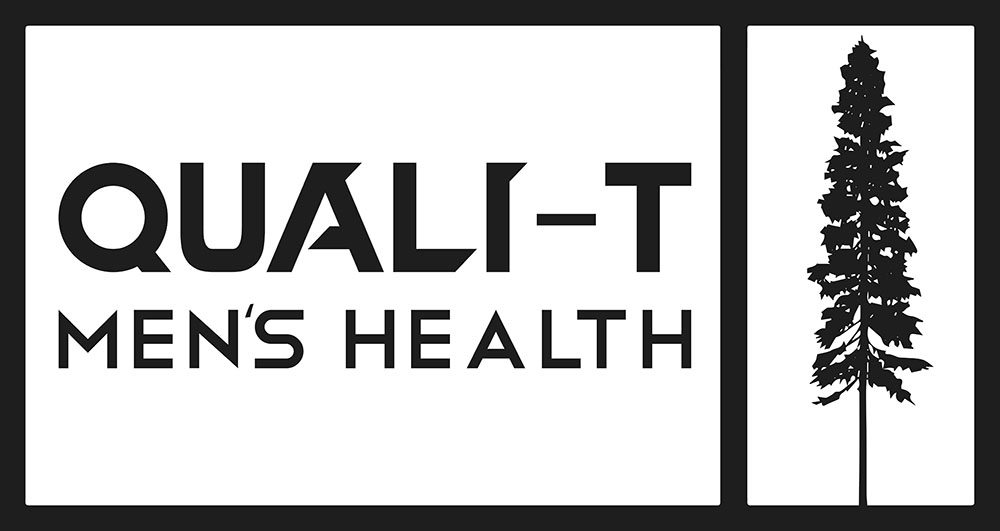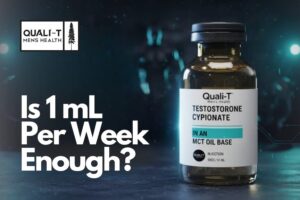
If you’re researching Testosterone Replacement Therapy (TRT) to combat the debilitating symptoms of low testosterone (Low T), you’ve likely come across concerns about cardiovascular health. One of the most frequently asked questions is if testosterone can increase blood pressure.
The relationship between testosterone and blood pressure is not a simple cause-and-effect. For every study suggesting that testosterone can raise blood pressure, there is evidence pointing to the opposite.
How TRT Can Support Reduction in High Blood Pressure
In many men, low testosterone itself is tied to conditions that cause hypertension, such as:
- Obesity: Low T is strongly linked to increased body fat and metabolic syndrome, both of which strain the cardiovascular system.
- Vascular Function: Healthy testosterone levels may promote better blood vessel relaxation, which supports healthy blood flow.
By treating the underlying hormone deficiency, TRT often leads to improvements in weight, energy, and overall metabolic health, which can, in turn, help lower high blood pressure in some men.
High Blood Pressure Risks Related to TRT
Despite potential benefits, the core concern remains: Can testosterone replacement therapy cause high blood pressure?
The potential for a rise in blood pressure is real, though often manageable, and is mainly due to two key mechanisms:
- Increased Red Blood Cells (Elevated Hematocrit): Testosterone stimulates the bone marrow to produce red blood cells. It is speculated or suggested that an increase in red blood cells can increase your blood pressure. It is very important to note that this increase in red blood cell production is called Androgen Induced Erythrocytosis. This is NOT polycythemia or polycythemia vera.
- Fluid Retention: Testosterone can cause the body to retain small amounts of sodium and water, increasing the total blood volume and pressure within the arteries. This generally peaks around 6-8 weeks after starting treatment and is usually back to baseline at round 10-12 weeks.
Managing the Risk: Can I do TRT if I Have High Blood Pressure?
The answer to “Can I take testosterone if I have high blood pressure?” is almost always yes, provided the hypertension is properly controlled and the treatment is expertly monitored.
For men with pre-existing hypertension, the biggest mistake is starting TRT without physician oversight. A specialized TRT clinic knows how to mitigate the risks:
- Get Controlled First: No responsible clinic will initiate TRT if your blood pressure is severely high and uncontrolled (e.g., above 160/100 mmHg). We often work with your primary care provider to ensure your hypertension is stable before beginning therapy.
- Lower-Risk Dosing: We use the minimal effective dose necessary to restore healthy hormone levels, avoiding the excessive doses that are most likely to cause cardiovascular side effects. We can still generally get men to the upper “normal” range without issues.
- Continuous Cardiovascular Monitoring: It is important to keep a journal of your blood pressure to take with you to your primary care physician. This will help them guide their decision making and next steps. We should not have to stop testosterone replacement therapy due to elevated blood pressure.
Is it a Misconception That High Testosterone Can Cause High Blood Pressure?
It’s important to distinguish between medically supervised TRT, which aims for a high normal physiological range, and steroid abuse, which often involves extremely high doses. It is the misuse of testosterone at supra-physiological levels that has the strongest link to significant, dangerous spikes in blood pressure.
For example, therapeutic doses of testosterone replacement therapy are generally anywhere from 120-200 mg total per week. Testosterone is often abused in the gym and they may dose upwards of 1,000 mg per week. This is nearly 5-10 times as much as a therapeutic dose.
Your Expert TRT Solution in Salem and Eugene, OR
Understanding the connection between whether TRT causes high blood pressure and safe, effective treatment requires specialized knowledge. For men across the Willamette Valley, from Salem to Eugene and everywhere in between, our clinic provides that expert oversight.
We don’t just treat lab numbers; we manage your total health picture, ensuring that your journey to reclaim energy and vitality doesn’t come at the expense of your cardiovascular health. In fact, testosterone is partially converted into estradiol, which has been proven to be cardioprotective (heart protective) and we do not block this conversion! This means that there is heart protection secondary to testosterone replacement therapy (if done correctly).
Ready to discuss your Low T symptoms and create a safe, medically-managed treatment plan?
Schedule your confidential consultation at our Salem or Eugene clinic today.





